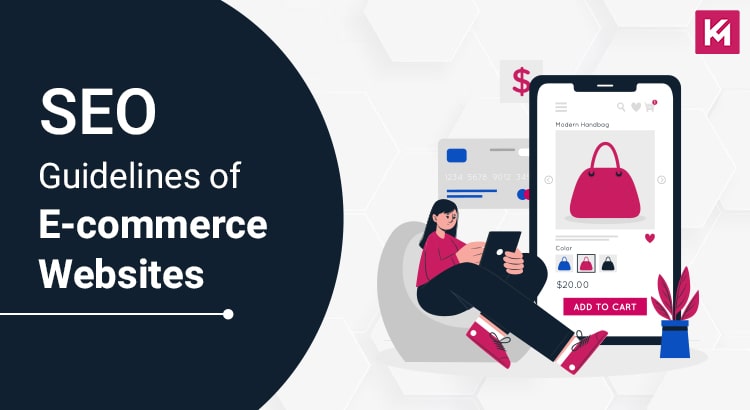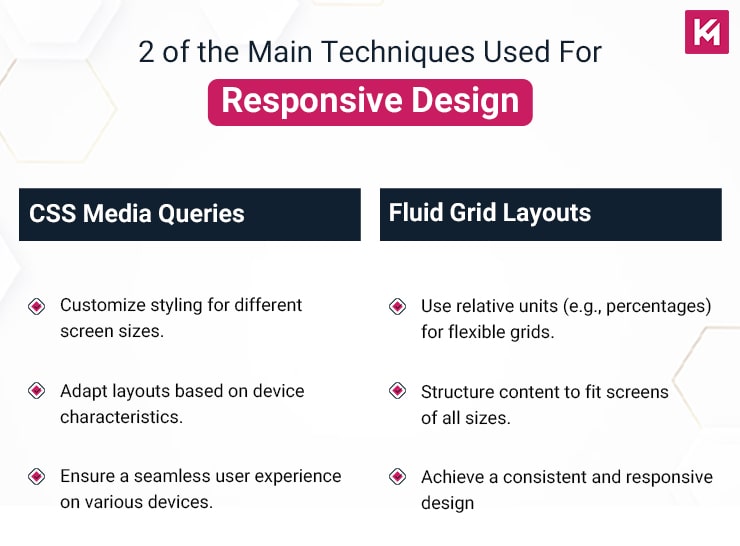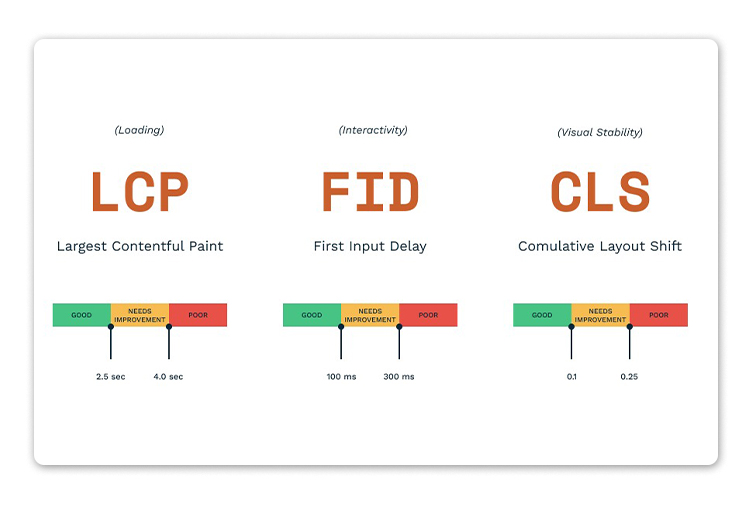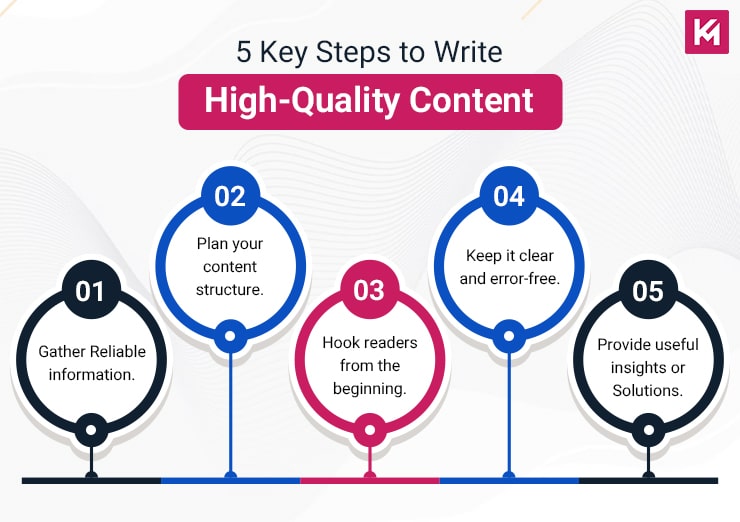In today’s time, the rise of ecommerce stores has made it easy for people to explore and buy products to their liking. However, this rapid growth has also increased the competition for ecommerce stores to attract and convert their target audiences. In this situation, a website alone can not help you to achieve the goals you desire.
So what could be the solution, you may ask? Well, to stand apart from your competitors and to make your product and services the most desired among your potential customers, SEO can be the key.
Let’s begin,
What is the importance of SEO for e-commerce businesses?
SEO unfurls as search engine optimization. This full form of SEO itself explains the term as a collective effort to optimize one’s website for better performance on search engines such as Google. For ecommerce, SEO is not just a mere choice but the need of the hour. Here is how:
1. Increases the search presence of your website:
By employing SEO practices you are sure to achieve a better ranking on the search engine result pages. This, in turn, will help your website become more visible among the audiences you wish to target.
A website with enhanced visibility will be more likely to be seen and clicked on by search engine users.
2. Credibility:
Tell me which website you prefer to engage with, a low-ranking or a higher one. The answer is simple, right? The website with a greater ranking.
Users tend to click and engage with websites that rank high as they see them as a more credible source of information. With SEO, you can increase the credibility of your website to win the trust of your target visitors.
3. Cost-effective:
When you compare SEO with other digital marketing strategies, you get 2 benefits. One is a long-term benefit, and the other is a cost-effective mode of optimization.
The moment you receive a good ranking, you will be able to enjoy organic traffic without having to spend on ongoing ad expenses.
What are the key ecommerce SEO practices?
Before reading, know that SEO works when you combine all the necessary practices into one integrated system. Below are some of the key SEO strategies that can help your online store rank high on search engine result pages.
1. Keyword research:
Definition: Keyword research is done to find the words or phrases that users type on search engines to arrive at a desired result.
Aim: In simple words, by inculcating these specific words in your content; you help search engines show your content to the related search query of the user.
Method: Keyword research can be achieved by using Google or any other search engine Or paid keyword research tools. SEMrush, Ahrefs, Moz and Google Analytics are some of the tools that can be used to conduct proper keyword research.
One of the most critical elements of keyword research is getting the intent of the users right. The intent of the users can be divided into 3 main categories, which are as follows:
1. Informational keywords: These keywords are used by the users when they want to know in detail about the products you offer. For example, What is the ChatGPT prompt course?
2. Navigational keywords: These keywords suggest that the user is familiar with the brand and only wants to reach the specific website. For example, Netflix Canada.
3. Transactional keywords: These phrases or words are used when the user is looking to buy a product or service. For example, buy an iPhone 15 max online.
Note: You should know here that no matter how good your content is written, it will not rank until and unless your content satisfies the search intent.
The use of paid keyword research tools can help gain deeper insights as compared to the free one. With paid tools, you gain the following benefits:
- Keyword search volume and ranking difficulty: This metric helps you to measure the popularity and the ranking difficulty of the given keywords. Always select keywords that have high search volume and lower competition for a better search ranking for your ecommerce store.
- Content gap analysis: With paid tools, unearth the keywords your competitors are ranking for. Add those deficient keywords to rank higher on search engine result pages.
Long tail keywords: These types of keywords are highly specific and only consist of 3 to 4 words in general. They often have less competition and higher conversion rates. For example, Men’s hiking shoes with ankle support.
2. Optimize your product pages:
Product pages are of utmost importance for an ecommerce website. The aim of these pages is to adequately impart the knowledge of the product or services to their target users. They play a crucial role in the user experience and the search ranking of your online store. So, for this very reason, it becomes critical to optimize them with SEO.
Below are some of the ways by which you can optimize your product pages for better visibility and conversions.
High-quality images: Use higher quality images to describe the single most details of your product to the potential customer. This approach enhances user experience and encourages them to take the desired action. In addition to this, employ the use of alt text for better search ranking.
Keyword-rich descriptions: Write product description content with target keywords for better reach and connection. Highlight your product’s unique features & benefits and describe how they solve the customers’ problems.
CTA (Call to Action): CTAs are interactive buttons on web pages that help users complete their desired action. You might have seen a designed button that says, “Click Here To Know More or Click To Get A Free Quote”; they are examples of them. Create short and compelling CTAs that evoke action out of your target visitors. Also, try to create different versions of them and see which one better resonates with your target audience.
Reviews: You might probably not know this, but user-generated content such as reviews or comments has a critical impact on conversions. It’s been seen quite often that users tend to measure the quality of the brand by paying attention to the comments left by existing users. So, it becomes very important to feature these gems of social proof on your product description pages.
Moreover, encourage your loyal customers to leave reviews and ratings on their purchased products.
3. User-Friendly website:
A user-friendly aspect of your website can help you rank better on search engine result pages and retain customers. When a user spends quality time on your website due to enhanced UX, Google sees it as a factor for better ranking. The main factors that contribute to an enhanced user experience of the visitors are as follows.
Mobile responsiveness: It is an approach by which ecommerce websites can become more accessible to users browsing through mobile phones and tablets. The importance of mobile optimization can be measured by this finding of Statista,
which states
So, it becomes critical to optimize your online store with responsive design to welcome the potential customers coming from these digital mediums.
Note:
Page Load speed: The loading speed of a website contributes to the overall user experience of the visitors and search rankings. Google has also affirmed the same with its official announcements. You might agree with me that users generally have short attention spans. So, when they interact with a website that loads slowly, chances are they will more likely bounce to another one. This is the reason why websites should consider the speed of the website for customer engagement and conversions.
- Below are some of the ways by which you can reduce the loading time of your ecommerce websites.
- Decrease the size of the product images without degrading the quality of the images in place.
- Combine CSS and JavaScript files to reduce multiple HTTP requests.
- Enable the browser caching option to allow browsers to load the static part quickly.
Clear Navigation: Optimize your website navigation system in a way that allows the visitors to find the information they are looking for. Create a site architecture that enables you to implement a clear and natural menu structure.
4. Schema markup:
Schema markup is a structured code used by digital marketers to help Google comprehend the content of your web pages in a better way. It allows search engines to put interactive and rich elements on their SERP for enhanced users’ search experience. When your content is optimized with schema markup, Google picks them and features them at the top of organic searches for better visibility. There are many types of schema markets that Google accepts, such as product, recipe, event markup, etc.
Product markup: This type of schema markup displays rich information such as prices, availability, and ratings on the search engine result pages.
5. Avoid duplicate Content:
Duplicate content can prove to be detrimental to your SEO efforts. This is because Google gets confused when it encounters similar web pages and sees them as spam, which might lead to a decrease in search rankings. Below are some of the strategies by which you can follow to eliminate duplicate content from your websites.
- Canonical tags: Leverage the use of canonical tags to specify the original version of the web pages if you have similar pages.
- 301 redirects: You can redirect your potential customers from outdated pages to relevant ones and maintain authority and ranking.
6. Link-building practices:
Link-building is a practice where you acquire backlinks from reputable websites to build authority and credibility. Google sees backlinks as a critical factor when it comes to ranking on the SERP. Here are some ways by which you can acquire quality backlinks.
- Guest posting: Create informative and engaging articles for third-party websites that agree to provide you with links back to your ecommerce store.
- Outreach: You can reach out to influencers, bloggers and other websites for collaborations and backlinking chances.
- Create shareable content: Crete high-quality and shareable content such as infographics, videos or guides that naturally attract backlinks and social shares.
7. High-quality content:
Content marketing plays a critical role in SEO for ecommerce websites. As discussed in product description points, ensure your content covers all the necessary points crucial for the potential customers. Highlight the benefits, specifications, and customizable options among many more to satisfy the search purpose of your target audiences.
Besides this, you can also maintain a blog section for your ecommerce website where you educate the users about your products and popular trends.
8. Social sharing integration:
In this final practice, make it easy for the visitors to share the products or information on your ecommerce website with their friends and family. This might increase the reach of your brand and boost referral traffic to your website.
For example,- Social share buttons
Incorporate social share buttons to your blogs, landing pages or product pages to encourage the users to share within their networks.
Final Words!!
In the end, know that SEO can help you achieve the success you have dreamt for your ecommerce business. SEO has the power to increase the ranking, visibility, and traffic flow of your website. It can help you bring qualified potential customers to your store with greater conversion potential.
So, if you are someone stuck with a limited number of guests appearing at your quality store, consider SEO services. Kinex Media is an excellent SEO service-providing company that can help you with all your digital marketing needs. Visit us and learn how we can help you achieve greater heights of profits.





